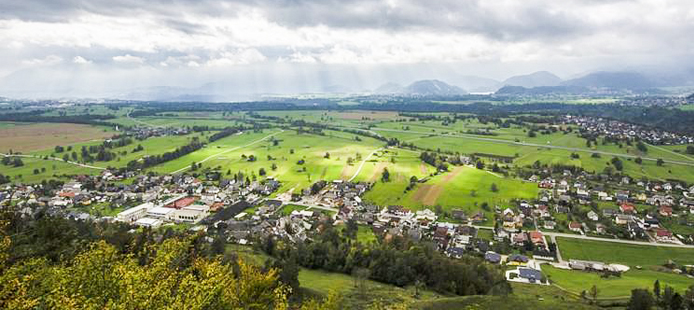Main Content
International Web Conference Social Entrepreneurship and Social Innovation in Rural Regions

Structurally weak rural regions are faced with major social and economic problems. In comparison to ‘predominantly urban’ or ‘intermediate’ regions, ‘predominantly rural’ regions, and particularly structurally weak rural regions, are economically less productive, which finds expression by a low level of gross domestic product. They provide a less extensive scope of desired goods and services, opportunities for higher education and qualified job offers. Shops where daily purchases can be made are scarce and it is challenging for the inhabitants to move around the region because public transport is very limited. Not least, rural areas are faced with recurring negative discourses on rural problems in public media resulting in negative images. Against this background the respective regions experience a considerable loss of inhabitants and especially a brain drain of young and highly skilled people. Since the Euro crisis has become a burden in some European regions the situation has become even more acute. Downward spirals were set in motion that further reduce economic opportunities and prevent rural regions from overcoming their structural deficits.
Facing various social problems, researchers and politicians see social entrepreneurs as a factor which can help tackle the aforementioned problems (Pless 2012, Schwarz 2014). Social entrepreneurs can be understood as visionaries who, using an entrepreneurial approach, develop and implement innovative solutions for social problems. The focus of these activities is not profit, but the production of social added-value for a particular society (Christmann 2014, 45). One important part of the definition is, thus, that social entrepreneurs generate and implement social innovations.
Social innovations refer to social practices being new or different from previous ones and offering “better” solutions than former practices. They are thus worth the effort of being imitated and institutionalised” (Zapf 1989, 177). It is a feature of innovations that new combinations of already known things play a role rather than completely new inventions. Innovation research assumes that it is not only individual actors who bring on innovation processes, but that innovations happen in the context of social interactions of different actors. In particular, social networks are considered an important factor. After all, we are aware of the fact that innovations happen within a certain environment. Thus, an analysis of innovation processes must consider the socio-spatial context of acting. Regional problems under specific structural or cultural conditions may lead to specific innovative solutions (MacCallum 2009, Moulaert/Mehmood 2011).
In the conference we will look at social innovation and social entrepreneurship in the countryside. Until recently, rural communities were only seldom viewed in relation to (social) innovation (see for example Coronado/Acosta/Fernandez 2008). They had more of a reputation for their remoteness from innovation. It would, however, be wrong to say that the countryside offers no fertile ground for innovation. Rural regions have always been used as places to experiment with creative development. It has often been, and continues to be, urbanites, sometimes artists, creatives, or those seeking an alternative lifestyle, who have retreated either individually, in groups, or in colonies, to the countryside, in order to attempt something new. But the locals, too, have struck out on new paths. Present-day empirical findings show that rural dwellers quite certainly test out and develop novel ideas, even if they do not themselves necessarily describe such novelty as “innovative”. First and foremost, they seek to develop solutions for existing problems; innovation for its own sake is not the goal. It is nevertheless clear to them that the old models are no longer of use, that new practices need to be tried, and creative solutions found.
In this context, the conference aims at organising an academic exchange about three aspects: (i) the specific challenges and dynamics of rural areas, (ii) the working conditions of social enterprises in these areas and (iii) the possibilities of creating and implementing socially innovative solutions for existing problems.
In Session 1 “Challenges and dynamics of structurally weak rural regions” we are seeking contributions on specific economic, political, cultural and everyday framework conditions of rural regions, knowing that they may diverge significantly from country to country and even within an individual country. These conditions are considered to be the socio-spatial contexts of social entrepreneurial acting. Amon other things, we are interested in the current situation of specific regions, but also in structural changes and the deduction of future prospects in order to provide information about future challenges and potentials for acting.
In Session 2 “On a mission for the region. Social enterprises at work” we are looking for presentations on how social entrepreneurial initiatives institutionally organise their work in problem solving, how they network and collaborate with others in these processes, which organisational structures are built, how sustainability of problem solving is ensured, and how they tackle social and economic exclusion. It is also a question of what kind of supportive or hindering factors can be identified.
- In Session 3 we invite papers on “The creation, diffusion and impact of social innovations in rural regions”. Only little is known about conditions of creating and implementing innovations in the countryside. It will be presented how social innovations emerge and how their novelty can be characterised in the rural context (for example, in how far social innovations refer to traditional elements, however combining them in a new way). In the session, it will be furthermore an issue how innovative practices spread spatially as part of an ‘innovation biography’, and not least which impacts on regional development can be observed as an effect of socially innovative initiatives.
Furthermore, the conference will provide insights into the results of an EU-funded research project entitled “Social Entrepreneurship in Structurally Weak Rural Regions: Analysing Innovative Troubleshooters in Action (RurAction)”.

